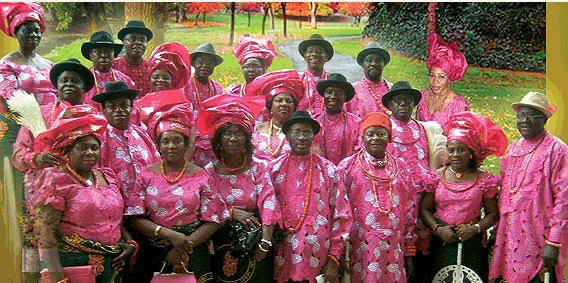Delta State Tribes: A Comprehensive List Of Ethnic Groups
Delta State, located in southern Nigeria, is one of the most ethnically diverse states in the country. The state is home to several indigenous ethnic groups, each with unique languages, traditions, and cultural heritage. It is a major oil-producing state and plays a key role in Nigeria’s economic and cultural landscape.

This article provides a detailed list of the indigenous tribes and ethnic groups in Delta State, their languages, traditions, and cultural significance.
1. Overview of Ethnic Diversity in Delta State
Delta State has a multi-ethnic composition, with Urhobo, Itsekiri, Isoko, Ijaw, and Anioma (Igbo-speaking Deltans)being the major ethnic groups. The state is divided into 25 Local Government Areas (LGAs), each having a mix of various tribes.
Key Ethnic Features of Delta State:
- Major Ethnic Groups: Urhobo, Itsekiri, Isoko, Ijaw, Anioma (Igbo-speaking).
- Number of Indigenous Tribes: Over 15.
- Languages Spoken: Urhobo, Itsekiri, Isoko, Ijaw, Ukwuani, Igbo, and others.
- Religions: Christianity (majority), followed by traditional beliefs.
2. Major Ethnic Groups in Delta State
A. Urhobo People
The Urhobo are the largest ethnic group in Delta State. They are known for their rich cultural heritage, music, and traditional leadership structures.
- Language: Urhobo
- Location: Found in Ughelli, Ethiope, Okpe, Sapele, and Uvwie LGAs.
- Culture: Famous for traditional festivals, dances, and age-grade systems.
- Religion: Predominantly Christianity, with some traditional worship.
B. Itsekiri People
The Itsekiri are known for their strong historical connection with the Benin Kingdom and European traders.
- Language: Itsekiri (related to Yoruba)
- Location: Found in Warri South, Warri North, and Warri Southwest LGAs.
- Culture: Known for royalty, trade, and the Olu of Warri Kingdom.
- Religion: Mainly Christianity, with some traditional beliefs.
C. Isoko People
The Isoko people share similarities with the Urhobo but maintain a distinct language and identity.
- Language: Isoko
- Location: Found in Isoko North and Isoko South LGAs.
- Culture: Known for farming, trading, and traditional festivals.
- Religion: Christianity and traditional worship.
D. Ijaw People
The Ijaw are a prominent ethnic group in the riverine areas of Delta State, known for their fishing and warrior traditions.
- Language: Ijaw (Izon)
- Location: Found in Burutu, Bomadi, Patani, and Warri Southwest LGAs.
- Culture: Known for fishing, canoe building, and resistance to colonial rule.
- Religion: Christianity and traditional beliefs.
E. Anioma People (Igbo-Speaking Deltans)
The Anioma people are an Igbo-speaking group in Delta North Senatorial District.
- Language: Igbo (Ukwuani, Enuani, Ika dialects)
- Location: Found in Oshimili, Aniocha, Ukwuani, and Ndokwa LGAs.
- Culture: Similar to the Igbo people of the Southeast.
- Religion: Predominantly Christianity.
3. Complete List of Indigenous Tribes in Delta State
Delta State has over 15 indigenous ethnic groups, including:
- Urhobo
- Itsekiri
- Isoko
- Ijaw (Izon, Mein, Arogbo, Egbema, Gbaramatu, Ogbe-Ijaw, Seimbiri, Obotebe, and Furupagha subgroups)
- Anioma (Igbo-speaking groups: Ukwuani, Enuani, Ika, and Ndokwa)
- Okpe
- Ezon (a subgroup of Ijaw)
- Aboh
- Ebu
- Ibrede
- Ogwashiku
- Obiaruku
- Asaba
- Kwale
- Ibusa
Each of these ethnic groups has distinct languages, customs, and historical backgrounds that contribute to Delta State’s cultural diversity.
4. Languages Spoken in Delta State
Delta State is linguistically diverse, with multiple indigenous languages spoken. Some of the main languages include:
- Urhobo – Spoken in Ughelli, Sapele, Ethiope, and Okpe.
- Itsekiri – Spoken in Warri and surrounding areas.
- Isoko – Predominantly spoken in Isoko North and South.
- Ijaw (Izon dialects) – Spoken in Burutu, Bomadi, and Patani.
- Igbo (Ukwuani, Enuani, Ika dialects) – Spoken in Anioma (Delta North).
- English and Pidgin English – Used as lingua franca across the state.
Most residents in Delta State speak multiple languages, often using English, Nigerian Pidgin, and their native tonguesfor communication.
5. Cultural Heritage and Festivals in Delta State
Delta State is known for its rich cultural traditions and vibrant festivals. Some of the most notable ones include:
- Olu of Warri Coronation Festival (Itsekiri) – Celebrates the installation of the Warri King.
- Ijaw Amaseikumor Festival (Ijaw) – A festival honoring Ijaw heritage and ancestors.
- Isoko Festival (Isoko) – A major event celebrating Isoko traditions and customs.
- Ofala Festival (Anioma Igbo) – Celebrates the Obi (King) of Anioma communities.
- Urhobo Annual Cultural Festival – Highlights Urhobo traditional dances, music, and art.
These festivals play a crucial role in preserving the history, customs, and identity of the ethnic groups in Delta State.
6. Frequently Asked Questions (FAQs)
1. What is the main ethnic group in Delta State?
The Urhobo people are the largest ethnic group in Delta State.
2. How many ethnic groups are in Delta State?
Delta State has over 15 indigenous ethnic groups, including Urhobo, Itsekiri, Isoko, Ijaw, and Anioma (Igbo-speaking people).
3. What language is most commonly spoken in Delta State?
The most spoken indigenous languages include Urhobo, Itsekiri, Isoko, Ijaw, and Igbo (Ukwuani, Enuani, and Ika dialects).
4. Are the Anioma people in Delta State Igbo?
Yes, the Anioma people speak Igbo dialects (Ukwuani, Enuani, Ika) and are culturally related to the Igbo of southeastern Nigeria.
5. What is Delta State known for?
Delta State is famous for:
- Oil and gas production (a major economic hub in Nigeria).
- Cultural diversity and festivals.
- Warri Kingdom and the Olu of Warri.
- Tourist sites like River Ethiope, Nana’s Palace, and Asaba Film Village.
7. Conclusion
Delta State is one of Nigeria’s most ethnically diverse states, with a rich mix of indigenous tribes, languages, and traditions. From the Urhobo people and their traditional festivals, to the Itsekiri Kingdom, the Isoko communities, and the Ijaw riverine settlements, Delta State remains a cultural and economic powerhouse.
Are you from Delta State? Which ethnic group do you belong to? Let us know in the comments!





